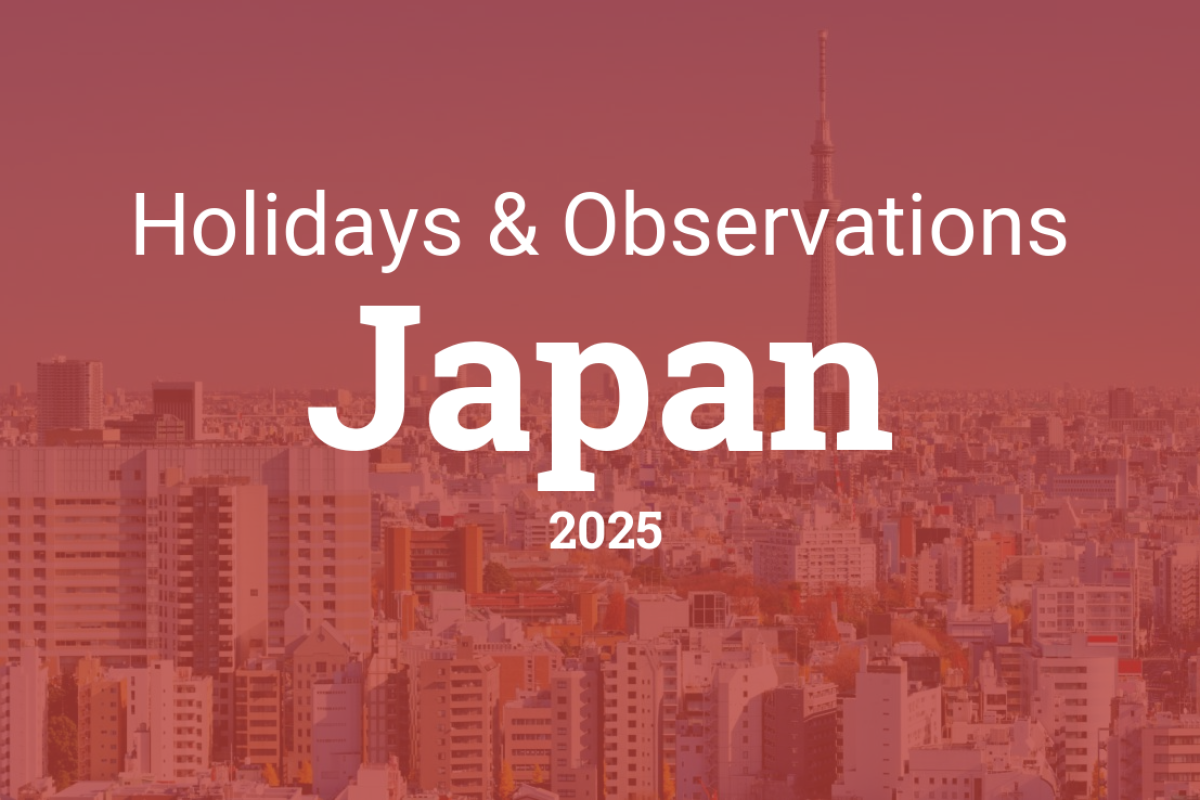Japan’s public holidays in 2025 provide a chance to recognize the nation’s cultural traditions, historical significance, and observances that shape the national work rhythm. For businesses, understanding these holidays is crucial to planning operations and managing employee leave.
Here’s a breakdown of Japan’s key public holidays in 2025, offering businesses guidance on holiday scheduling, workforce planning, and compliance.
Key Public Holidays in Japan for 2025
Japan celebrates several national holidays that commemorate historical events, honor cultural traditions, and mark religious observances. For businesses, understanding the dates and their impact on operations is essential.
| Date | Holiday | Description |
|---|---|---|
| January 1 | New Year’s Day | Marks the beginning of the year with traditional family gatherings, religious observances, and ceremonies. |
| January 11 | Coming of Age Day | Celebrates young people turning 20, the age of majority in Japan, with ceremonies and public celebrations. |
| February 11 | National Foundation Day | Commemorates the founding of Japan by Emperor Jimmu, the country’s first emperor, in 660 BCE. |
| March 20 | Vernal Equinox Day | A day to honor ancestors and celebrate the arrival of spring, typically marked by visits to family graves. |
| April 29 | Showa Day | Honors the birthday of Emperor Showa (Hirohito), marking the start of the Showa era (1926-1989). |
| May 3 | Constitution Memorial Day | Celebrates the promulgation of the post-WWII constitution of Japan in 1947, with speeches and public events. |
| May 4 | Greenery Day | Dedicated to nature and the environment, encouraging outdoor activities and appreciation of Japan’s natural beauty. |
| May 5 | Children’s Day | A holiday celebrating children’s happiness and growth, marked by flying koinobori (carp-shaped flags) and family gatherings. |
| July 20 | Marine Day | Commemorates the role of the ocean in Japan’s history, celebrated with maritime activities and coastal festivals. |
| August 11 | Mountain Day | A newer public holiday honoring Japan’s mountainous landscape, promoting outdoor activities. |
| September 15 | Respect for the Aged Day | A day to honor the elderly population, with public events and ceremonies acknowledging the contributions of senior citizens. |
| September 23 | Autumnal Equinox Day | Similar to the Vernal Equinox Day, this holiday is a time for remembering ancestors and celebrating the harvest. |
| October 13 | Health and Sports Day | Celebrates physical fitness, with many communities holding sports events and festivals promoting healthy living. |
| November 3 | Culture Day | A day to celebrate arts, culture, and academic achievements, with ceremonies and cultural exhibitions nationwide. |
| November 23 | Labor Thanksgiving Day | Originally a harvest festival, it now focuses on honoring workers and promoting appreciation for labor. |
| December 23 | Emperor’s Birthday | Celebrates the birthday of the current Emperor, marked by ceremonies and public appearances at the Imperial Palace. |
Additional Observances in Japan
In addition to national holidays, Japan observes several traditional or regional events that are culturally significant but may not be official public holidays. These can influence employee behavior and company operations.
| Date | Observance | Description |
|---|---|---|
| February 14 | Valentine’s Day | Celebrated with gift-giving, primarily among couples, but also within workplaces where employees exchange chocolates. |
| November 3 | Shichi-Go-San | A traditional rite of passage for children at the ages of 3, 5, and 7, typically involving visits to shrines for blessings. |
| December 31 | New Year’s Eve (Omisoka) | A traditional holiday for family gatherings and preparations for the New Year, marking the end of the year. |
Employer Considerations for Managing Public Holidays in Japan
National vs. Cultural Observances
Employers should be mindful that while only the public holidays are mandatory for leave, several cultural observances are highly valued by employees. Many of these are incorporated into workplace culture and may influence employee expectations for time off or celebrations within the office.
Managing Public Holidays with EOR/PEO Services
International companies with a presence in Japan may benefit from partnering with an Employer of Record (EOR) or Professional Employer Organization (PEO). These services can assist businesses with:
- Ensuring Compliance: EOR/PEO services are well-versed in Japanese labor laws and can ensure compliance with holiday-related leave and pay.
- Payroll Adjustments: Managing payroll, including overtime or alternative leave for employees working on holidays.
- Leave Management: Tracking holidays and facilitating leave requests to streamline operations.
Holiday Pay and Compliance in Japan
Japanese labor law mandates specific guidelines for holiday pay and leave:
- Paid Leave: Employees are entitled to paid leave on designated public holidays.
- Holiday Rates: Employees who work on public holidays are entitled to overtime pay or alternative leave.
- Substitute Holidays: If a public holiday falls on a weekend, companies may offer substitute holidays, often on the following Monday.
Productivity and Holiday Planning
To maintain efficiency and avoid disruptions, businesses can consider the following strategies:
- Advance Communication: Sharing holiday schedules well in advance helps employees plan time off and minimizes business disruption.
- Workplace Flexibility: Offering flexible work hours or remote work options during holiday periods can support both business continuity and employee satisfaction.
- Project Timelines: Adjusting project timelines to accommodate holiday schedules helps prevent delays and ensures on-time delivery.
Final Thoughts
Japan’s 2025 public holiday calendar offers valuable opportunities for businesses to plan and optimize workforce management. Understanding both public holidays and cultural observances ensures compliance, boosts employee satisfaction, and helps maintain productivity. With careful planning, businesses can respect Japanese traditions while operating smoothly, benefiting both employers and employees.
GlobainePEO – Your Trusted Partner
At GlobainePEO, we help employers navigate the complexities of managing public holidays in Singapore. From ensuring compliance with provincial laws to managing holiday schedules, we provide the support your business needs to thrive. Let us handle your workforce management while you focus on growing your business.

